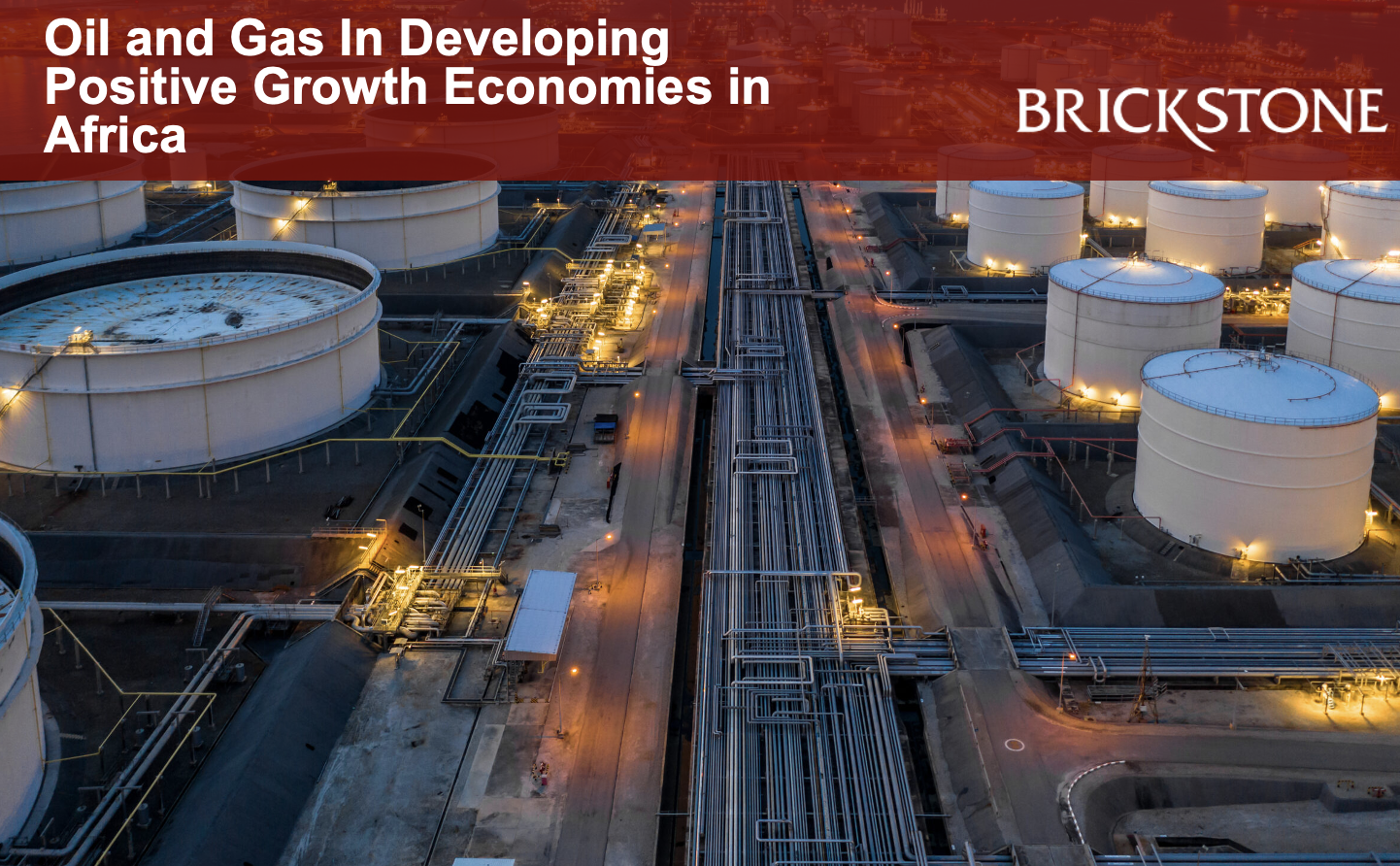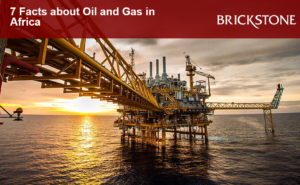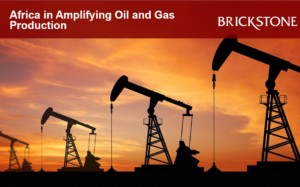Oil and Gas In Developing Positive Growth Economies in Africa
With over 125 billion barrels of crude oil reserves and 620 trillion cubic feet of natural gas – estimates that are expected to further increase as multi-year exploration campaigns yield new discoveries – Oil and gas in Africa is well-positioned to usher in long-term and sustainable economic growth on the back of hydrocarbon development.
For the continent’s wider economy, large-scale oil and gas projects promise new opportunities for export revenues and tangible economic gains for society.
This article by Brickstone Africa reviews the Energy Capital & Power’s publication on leveraging oil and gas to develop positive growth economies in Africa.
Oil and Gas in Africa: Unlocking Socioeconomic Opportunities
Africa’s natural resource wealth lays the foundation for a number of socioeconomic advancements, if the right investment can be secured. Specifically, the development of sizable oil and gas discoveries opens up pathways for job creation and skills development, which remain a high priority for local governments.
Africa is home to five of the top 30 oil-producing countries in the world. The industry remains a primary driver of the continent’s economic growth and development. According to the African Development Bank, Africa despite housing large opportunities and potential, the exploration and exploitation of these resources are yet to be used strategically to benefit the populations.
With unemployment representing a critical challenge in Africa – the continent’s most industrialized nation, South Africa, for example, saw unemployment rates exceed 20% for the first time in decades in 2022 – the oil and gas industry has a key role to play.
What’s more, by leveraging the oil and gas industry, Africa can kickstart long-awaited industrialization, revenue generation and broader GDP growth. While the continent has been gradually industrializing over decades, the pace of progress has been slow.
Now, with attention turning to resource maximization, the African continent has a chance to redirect revenues generated from oil and gas exports into trade, manufacturing and industry –leveraging digitalization, technological advancements and enhanced financing to develop diversified industries continent-wide.
Meanwhile, as new projects come online, bilateral trade and development can improve, with African nations set to benefit from heightened GDP.
Following the outbreak of the Russia-Ukraine War, Reuters stated that energy firms were considering $100 billion in projects in Africa, with budding oil and gas supply set to strengthen Africa’s influence on the global energy stage.
Namibia, for example, is set to double its GDP with the development of its two hydrocarbon finds discovered in 2022; Mozambique’s GDP is expected to increase by 6.5% due to investments in gas; and Senegal hopes to sustain 8% GDP growth over the next decade from its upcoming oil and gas projects. Thus, the development of a positive growth economy in Africa is on track.
Oil and Gas in Africa: Kick-starting Multi-Sectoral Development
Investing in African energy will not only create direct jobs, but also trigger newfound opportunities for multi-sector development. By investing in African energy, stakeholders will be indirectly investing in Africa’s overall economy, whereby funds can be generated and reinjected into other high-potential economic sectors, such as agriculture, mining, telecommunications, services and commerce.
According to estimates by the International Energy Agency, Africa could replace as much as one-fifth of Russian gas exports to Europe by 2030, generating an additional 30 billion cubic meters of African gas per year.
In addition to these economic sectors, improving the national fiscus will allow for heightened investment in public services and infrastructures, including education, transportation and health. The result: a ripple effect of opportunities, with investment in education scaling up capacity of the future workforce, transportation improving connectivity country-wide, and health improving local standards of living.
In short, the entire economy and local populations stand to benefit from the sustainable development of Oil and gas in Africa.
Oil and Gas in Africa: Improving Economic Stability and Resilience
For a continent that has long-been reliant on the import of refined products to sustain its growing economies, renewed focus on developing mid- and downstream industries has opened up new opportunities for economic resilience. In 2023, following two years of global economic turmoil brought about by the COVID-19 pandemic and Russia’s invasion of Ukraine, enhanced energy security and strengthened supply chains represent top priorities for countries worldwide.
In Africa, as new investment flows into emerging oil and gas markets – driven by the need for alternative energy supplies – a new era of stability is in sight, as governments improve investment frameworks and redirect capital towards hydrocarbon extraction, processing and distribution infrastructure.
Read more here.







